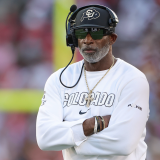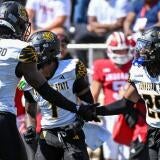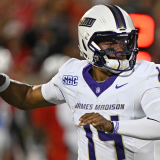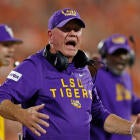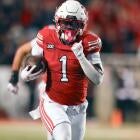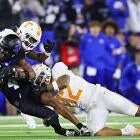
Pitt's Pat Narduzzi rips NCAA for removing pro sports betting ban: 'One of the stupidest decisions'
Narduzzi wants no part of the new NCAA policy taking effect Saturday allowing athletes to bet on professional sports
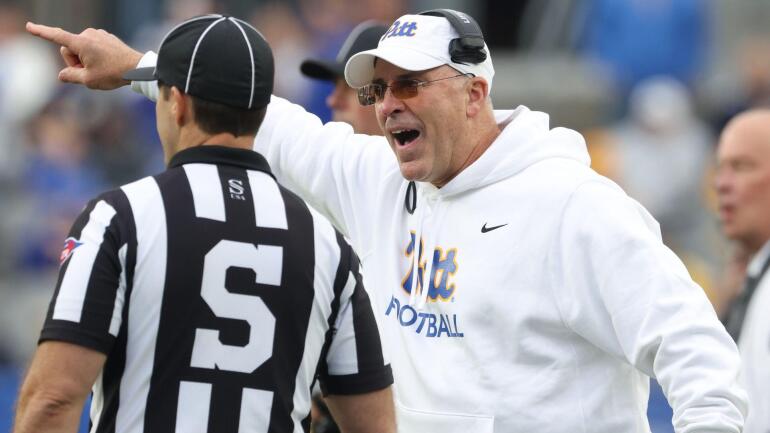
As the NCAA opens the door for college athletes to gamble on professional sports beginning Saturday, Pittsburgh coach Pat Narduzzi wants no part of it. To him, the decision opens the door to a problem he calls a "disease", built on hypocrisy and bad habits.
"It's absolutely one of the stupidest decisions I've ever seen," Narduzzi said. "First of all, it's a habit. It's no different than smoking, drinking, doing drugs, it's a bad habit. I don't think anyone here encourages you guys to go out drinking and getting smashed on a Friday night or Saturday night, or at a ball game."
The new policy, approved by Division I earlier this month and adopted by Division II and III councils on Oct. 22, allows athletes and athletic department staff members to bet on professional sports. Gambling on college games remains prohibited.
Narduzzi pointed to recent gambling issues in professional sports, including the NBA, where FBI raids last week led to more than 30 arrests -- among them Portland Trail Blazers coach Chauncey Billups, Miami Heat guard Terry Rozier and former player Damon Jones -- in an alleged multi-state betting and illegal poker scheme tied to organized crime.
"I'm not a gambler. So I just don't understand it," Narduzzi said. "I'm not addicted to anything. I just don't think it's a great thing to teach our young people how to do. It's hard enough in the compliance office of trying to get your guys not to gamble -- you can gamble at a boxing match, you can gamble on horse races because it's not an NCAA sport, but who's really gambling on horse races, really, unless you go to the track?
"You can go to the casino and play craps or whatever you want to play," Narduzzi continued. "But now, it's a thing on your phone -- you can pick it up, get on an app, and it's like, what are we doing? Once you do it once and you win, you want to do it again. It becomes an addiction. I just think it's not good."
Narduzzi also criticized the new player availability reports used by the ACC and other Power Four conferences, which require teams to publicly disclose which athletes will be unavailable for each game, all posted online. Narduzzi said such transparency, while intended to protect athletes and the integrity of competition, also provides gamblers with more information.
"It's a bad deal," Narduzzi said. "It all probably comes down to not wanting to deal with all the business that goes with trying to monitor it. But push the wrong button on your phone, see what happens -- 'Oh, I thought it was an NFL game, but I pushed the wrong button and put a bet on a college football game.' I just think it's not good."
Narduzzi said he plans to speak with his team Tuesday about the new NCAA policy.
"Stay away. Nothing changes in our room," he said. "You guys shouldn't be doing any of that. Save your money. Put it in the bank. That's my feelings."



